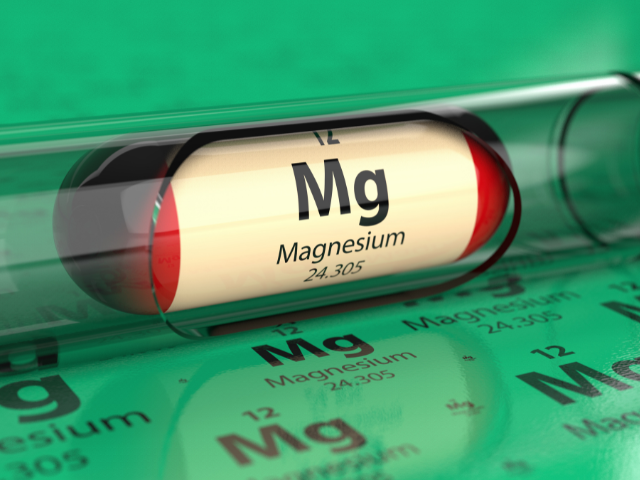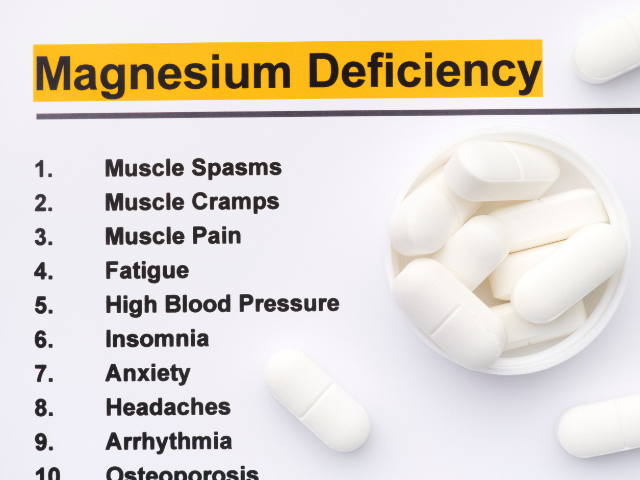Magnesium Supplements
Magnesium supplements may be a good option for those who don’t consume enough through food. It can be found in various forms, such as magnesium citrate, magnesium sulfate, magnesium glycinate, and others.
The recommended dietary allowance for magnesium for adult men is 400-420 mg per day. The dietary allowance for adult women is 310-320 mg per day. It’s best to follow dosage recommendations provided by your healthcare provider.
Signs of Magnesium Deficiency
Magnesium deficiency can develop over time, and you may not know when you’re deficient. Excessive loss of magnesium is often due to chronic conditions such as Crohn’s disease, celiac disease, type 2 diabetes, and alcoholism. Early signs of deficiency include nausea, vomiting, fatigue, and generalized weakness. As the depletion progresses, the symptoms may become more pronounced. These include numbness, tingling, abnormal heart rhythms, seizures, and personality changes.
Signs of Magnesium Toxicity
Magnesium toxicity only occurs when someone is taking magnesium as a supplement. It is not possible to become toxic when you are consuming the essential mineral from food sources. The main side effects from too much magnesium are diarrhea, nausea, and abdominal cramping.









